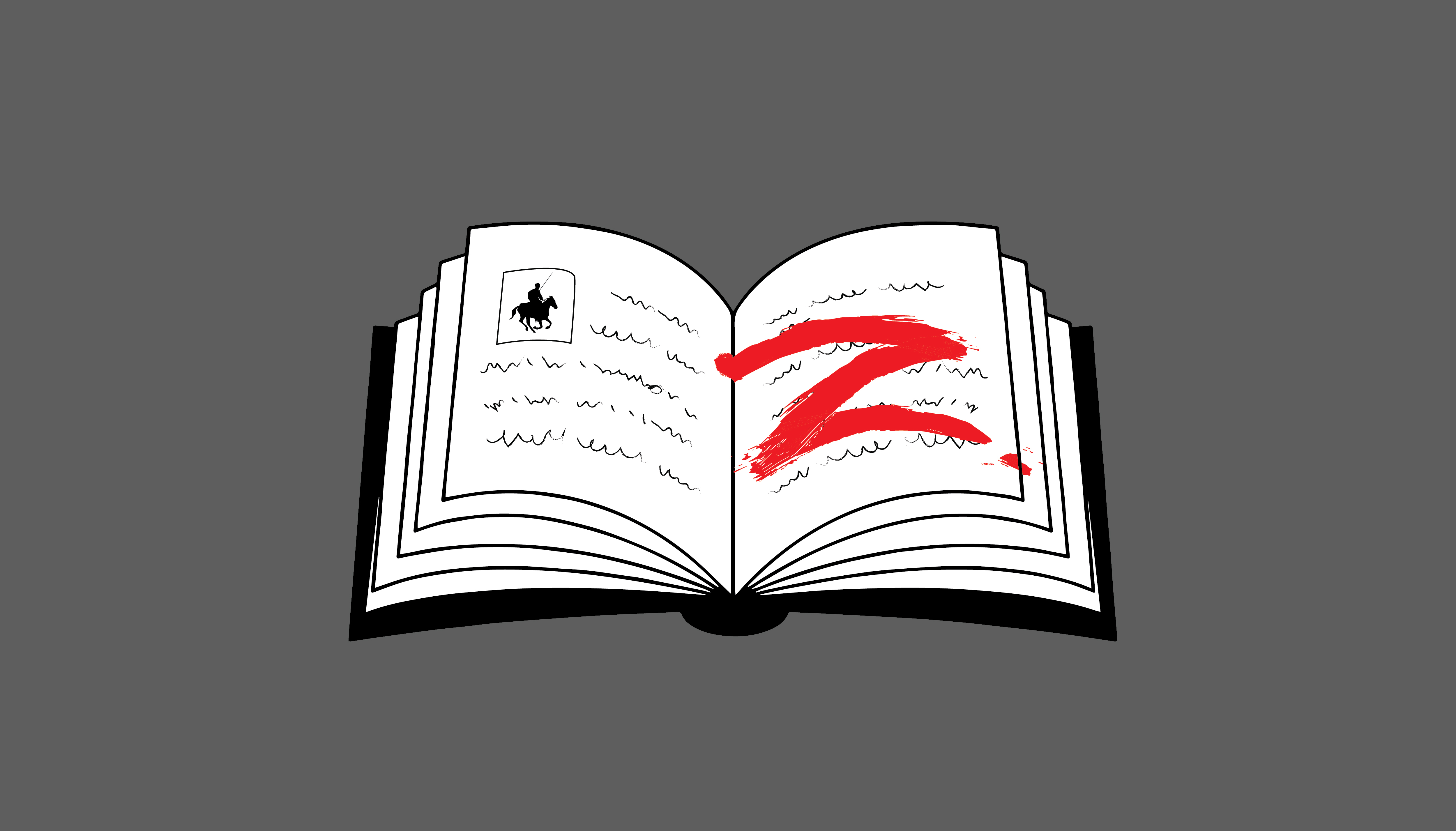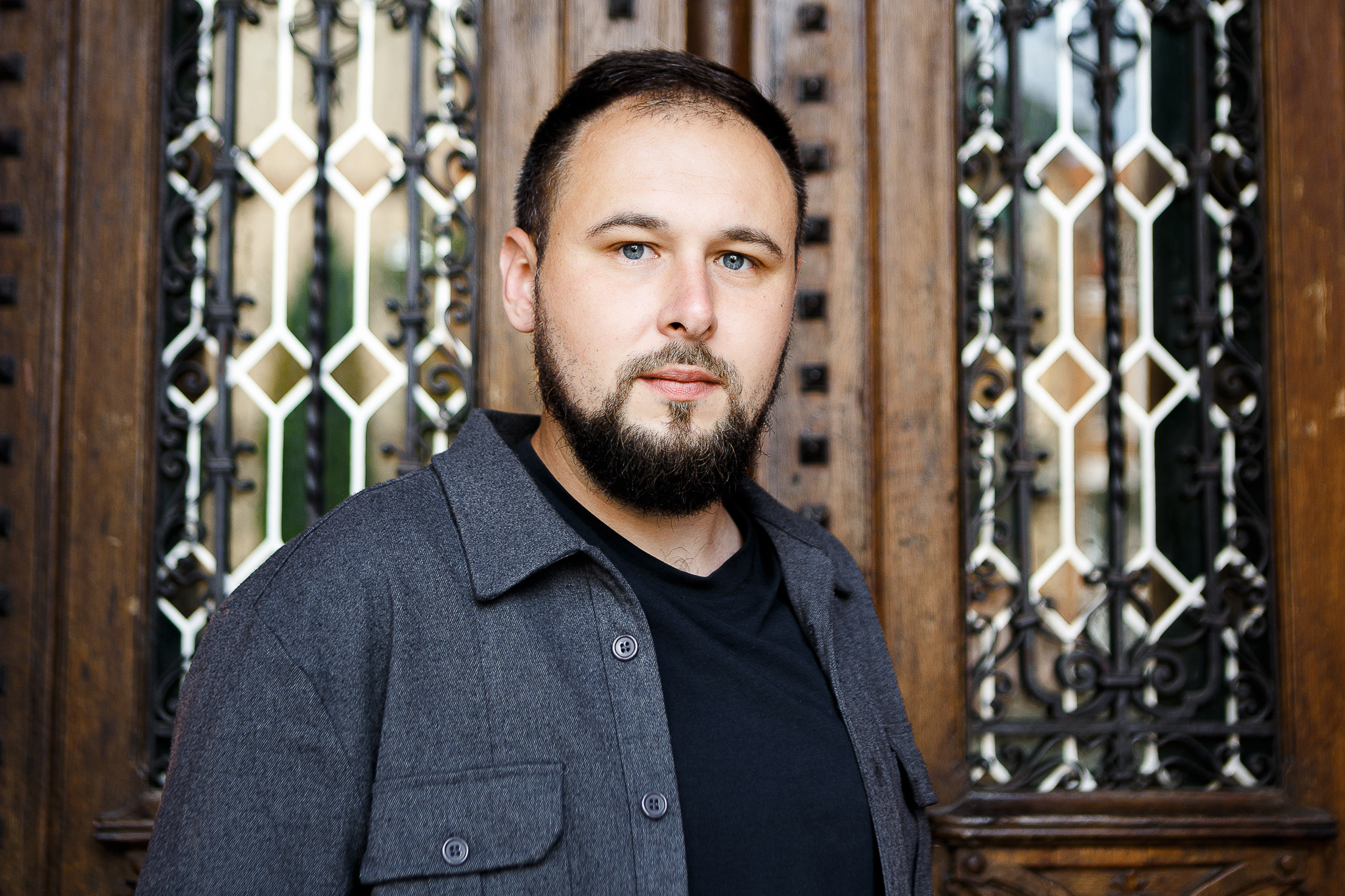Українською читайте тут.
Russia frequently manipulates historical interpretations to undermine and marginalize Ukraine’s accomplishments. Its propaganda machine consistently disseminates manipulative claims about Ukraine’s “historical memory”, accusing Ukrainians of altering the historical narrative surrounding Kyivan Rus, the Holodomor, World War II, as well as specific regions, including Crimea and eastern Ukraine. Here, we delve into the mechanics of this strategy and its importance to Russia.
Two decades ago, Ukrainian academic Natalia Yakovenko spoke about the coexistence and interconnection of “two histories”: academic and didactic. She defined academic history as an intellectual discipline that uncovers knowledge through rigorous scrutiny of sources. The corruption of academic history into something less, she argued, results in the didactic form.
The purpose of “didactic history” is to fortify the cultural memory — a shared perception of a group’s self-identity and historical journey. The cultural memory has been a foundational element of national identity since the French Revolution, transforming “peasants into nations.” This type of “history” usually does not necessitate source validation because its aim is not to debate and interpret but merely to “know.” For instance, to “know” that there was a “powerful state of Kyivan Rus” centuries ago, or simply “Rus”. However, without delving into scholarly specifics, both these names are later interpretations, and the concept of a “state” in today’s terms does not translate well to medieval political structures. As Natalia Yakovenko insightfully encapsulated the cultural memory, it is “the truth cherished by the heart.”
While historians create these “truths,” history itself has long been instrumentalized or, in other words, utilized for political ends. Disputes over “historical memory” often serve as a pretext for initiating actual wars. The ongoing war Russia is waging against Ukraine is a prime example. We will outline how the aggressor nation’s propaganda machine aims to discredit, desacralize, and misrepresent Ukrainian cultural memory.
“Russia and Ukraine’s Ancient Historical Connections”
Kremlin propaganda accentuates historical links between Ukraine and Russia to suggest that such connections ought to persist in the present day. The propagandists frequently underscore the historical link between Kyivan Rus, Russia, and Ukraine. By depicting Kyivan Rus as a “joint ancestral state,” the propaganda insists that Ukraine and Russia share “common roots.” Moreover, in such narratives, Kyiv is often referred to as the “mother of Russian cities,” purportedly underlining the historical ties and enhancing the aggressor state’s sway over Ukraine.
However, with the onset of Russian aggression and the illegal annexation of Crimea, this historical narrative began to undergo substantial alterations. Following the outbreak of full-scale war, Russians in media and textbooks replaced “Kyivan Rus” with “Ancient Rus,” or simply “Rus.” Initially, Russian propagandists, and later in September 2022, Vladimir Putin himself, during a speech in the city of Veliky Novgorod, claimed that “Veliky Novgorod is the birthplace of Russia.” He further stated that it was from here that “the greatest state in Europe at the time was formed, combining Slavic, Finno-Ugric, Turkic, and other tribes, extending its burgeoning reach from Ladoga and the Baltic, Novgorod, and Pskov to Kyiv and Chernihiv, the Azov, the Black Sea, Crimea...”.
Putin was referencing the Varangian prince Rurik, who, as per the Primary Chronicle, was invited by the Slavs to rule Novgorod in the 9th century. Contemporary history considers Rurik to be a mythical figure since the Primary Chronicle was composed no earlier than the 12th century. Additionally, events described in this chronicle that purportedly happened before the mid-10th century are scarcely corroborated by other sources. With this narrative, Russian propaganda seeks to undermine Kyiv’s history as the princely center of Kyivan Rus, a fundamental aspect of the Ukrainian cultural memory. It thus seeks to delegitimize the historical continuity of Ukraine’s capital city.
Russian propaganda makes use of historical personalities who have had a profound influence on both Ukrainian and Russian cultural memories. For instance, Prince Vladimir the Great, who governed Kyivan Rus and baptized it, is represented as part of a shared or exclusively Russian historical legacy. In November 2016, a monument to Vladimir the Great was erected in Moscow. During the inauguration, Putin stated: “The new monument is a homage to our remarkable ancestor, a particularly venerated saint, statesman, and warrior, the spiritual progenitor of the Russian state.” He further added that “the Christianization of Rus became a shared spiritual genesis for the peoples of Russia, Belarus, and Ukraine.” By emphasizing these “common figures,” Russia aims to fortify a sense of “cultural kinship” and undermine Ukrainians’ entitlement to their unique cultural identity, separate from the Russian one.
Such negative portrayal within the minds of Russian propaganda consumers strips Ukraine of its right to sovereignty, thereby providing an alleged justification for Russia’s occupation of Ukrainian territories.
“The Shared Soviet Motherland”
The Soviet period significantly influences the cultural memory of both Russia and Ukraine. Russian propaganda leans heavily on the positive aspects of Soviet history while dramatically understating its negative consequences. The goal is to paint Russia as the rightful successor to the Soviet Union and to assert its influence over Ukraine.
Russian propagandists routinely trivialize or outright dismiss the suffering endured by Ukrainians under Soviet rule, particularly during the Holodomor, the man-made famine-genocide of the 1930s. The Holodomor is framed as a shared Soviet hardship, not as a targeted attack against the Ukrainians. For instance, in December 2022, Russia’s Foreign Ministry, responding to the European Parliament’s acknowledgment of the Holodomor as genocide against Ukrainians, stated that the allegations of the malicious nature of the Holodomor were “blasphemous and ridiculous, and it was a tragic page in the common history of the USSR, with the RSFSR [Russian Soviet Republic] suffering the main blow, and in Ukraine, the areas with a predominantly Russian population — Kharkiv, Donetsk, Dnipro, and Odesa regions — suffered the most.”
Russia resorts to equivocation to diminish Ukrainians’ rights to commemorate and honor the victims of the Holodomor and, in doing so, justifies the crimes of Stalin’s regime. It also seeks to convince audiences that the USSR was not a bane for Ukraine and to establish a narrative that “the collapse of the Soviet Union was the greatest tragedy in the history of Russians, Ukrainians, and Belarusians.” Consequently, it provides a supposed “justification” for waging a war of aggression against Ukraine.
“The Great Patriotic War and the Nazi Ukrainians”
Propagandists from the invader state underscore the role of the Soviet Union in the triumph over Nazi Germany but conveniently omit or downplay the contributions and sacrifices of Ukrainians. By casting Russia as Ukraine’s primary savior from Nazism, the propaganda machine engages in devaluation tactics. Propagandists aim to tarnish both the Ukrainian independence movement and Ukrainians who fought Nazism as part of the Red Army.
Russian propaganda frequently equates Ukrainian nationalism and the independence movement with Nazism due to the collaboration of certain Ukrainian nationalist groups with Germany during World War II. Russian propaganda frequently labels the Ukrainian government and its supporters as “fascists” or “neo-Nazis,” using imagery from World War II. This is a classic tactic of labeling.
The propaganda manipulates the history of war memorials, memorial sites and dates to disseminate messages that glorify the Soviet Union and depict Russia as the rightful heir and protector of the Soviet legacy. At the same time, Ukraine’s contributions are frequently downplayed or disregarded. All this is done to bolster the notion that Ukraine should be subject to Russian influence.
“Crimea Has Always Been Russian”
In 2014, Russia annexed Crimea, a region with deep historical and cultural ties to Ukraine. To legitimize its actions, propagandists from the aggressor state resorted to historical and ethnocultural “arguments,” asserting that Crimea “has always been an integral part of Russia.”
The propagandists heavily emphasize the eras when Crimea was under Russian rule, such as during the Russian Empire and the Soviet period. Meanwhile, they gloss over the history of the Crimean Khanate and any positive changes on the peninsula that came with Ukrainian governance. Russian disinformation campaigns employ the strategy of half-truths; while Crimea has indeed been a part of Russia throughout history, it does not imply that the peninsula is “inherently Russian.”
The Russian propaganda machine exploits the ethnic and cultural demographics of Crimea. The propagandists portray Crimea as a predominantly Russian-speaking region with a substantial population of ethnic Russians while downplaying the historical presence of Ukrainians and Crimean Tatars. Furthermore, the propaganda attempts to justify Stalin’s genocidal act in 1944 — the mass deportation of all Crimean Tatars from the peninsula. Propagandists equivocate, claiming that Crimean Tatars were expelled “because they were all Nazi collaborators.” Detector Media has previously reported on how Russian propaganda targets Crimean Tatars.
What are the Potential Dangers for Ukraine?
The instrumentalization of history by Russia presents numerous dangers for Ukraine. For instance, Russia’s “historical arguments” can find traction overseas, especially in the Global South, by legitimizing Russian aggression and undermining Ukraine’s status as a legitimate player in geopolitics, rather than just a “fragment of Russia” or by “stealing” Ukraine’s historical achievements and figures in the eyes of the world. As for internal threats within Ukraine, justifying the USSR and Russia’s role in Ukrainian history could lead to the strengthening of pro-Russian movements and political parties within Ukraine. Furthermore, the revision of textbooks in the occupied territories, as previously discussed by Detector Media, could impede the reintegration of Ukrainians into a unified cultural space in the future.



